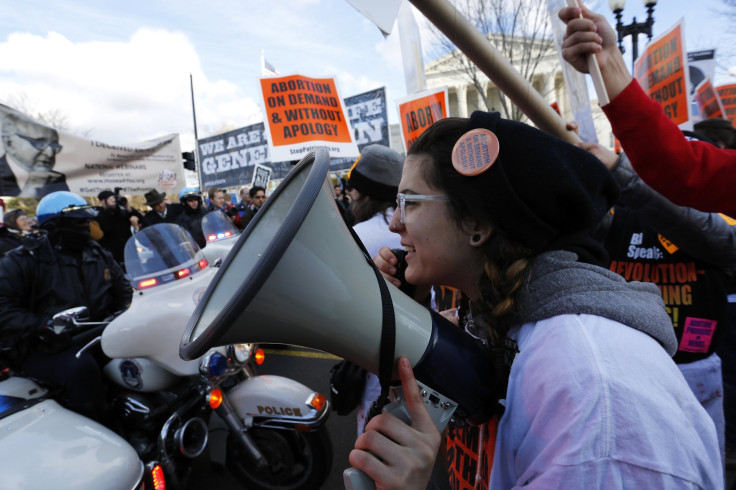Tennessee Abortion Clinics: 2 Locations To Remain Open After Federal Judge's Order

Two Tennessee abortion clinics facing closure under a new state law can remain open for now, a federal judge ruled Friday. U.S. District Judge Kevin Sharp issued a temporary restraining order that keeps the state from enforcing the law as it applies to the Bristol Regional Women's Center in Bristol and the Women's Center in Nashville.
“These clinics have been providing safe abortion care to Tennessee women for decades,” Judge Sharp wrote. "Without a temporary restraining order in place, the clinics "and their patients will suffer irreparable harm beginning on July 1, 2015, when the Bristol and Nashville Clinics are forced to close and women with appointments at those clinics are turned away."
The ruling was but the latest turn in a spate of battles playing out in courts and in statehouses across the country about laws that place limits on women's ability to seek an abortion. The Guttmacher Institute, a New York-based research group, told the Associated Press earlier this month that 31 states have enacted 267 abortion restrictions since 2011.
The Tennessee law in question, scheduled to go into effect Wednesday, requires clinics to meet new licensing standards as "ambulatory surgical treatment centers." To get the license from the state health department, existing clinics must submit a set of architectural plans, renovate their buildings as required by a reviewer, and then pass a site inspection that's scheduled 30 to 45 days in advance.
But the Tennessee Department of Health didn't make the license application available until June 16, leaving the clinics a window of just 15 calendar days to comply. "It is simply not possible to complete this process in the time available before the law takes effect," Judge Sharp said in Friday's ruling.
Adams & Boyle, P.C., which operates the two abortion clinics, along with Dr. Wesley Adams, who performs abortions at both clinics, requested the temporary restraining order after filing a lawsuit against state officials Thursday.
The suit, joined by the Memphis Center for Reproductive Health, challenges two other laws, the Tennessean reported this week. One law, also set to take effect July 1, requires women to receive in-person counseling from a doctor, and then wait 48 hours, before they can obtain an abortion. The other law took effect in 2012, and requires abortion doctors to have hospital admitting privileges.
A hearing in the case is scheduled for July 9 in U.S. District Court in Nashville.
© Copyright IBTimes 2024. All rights reserved.











